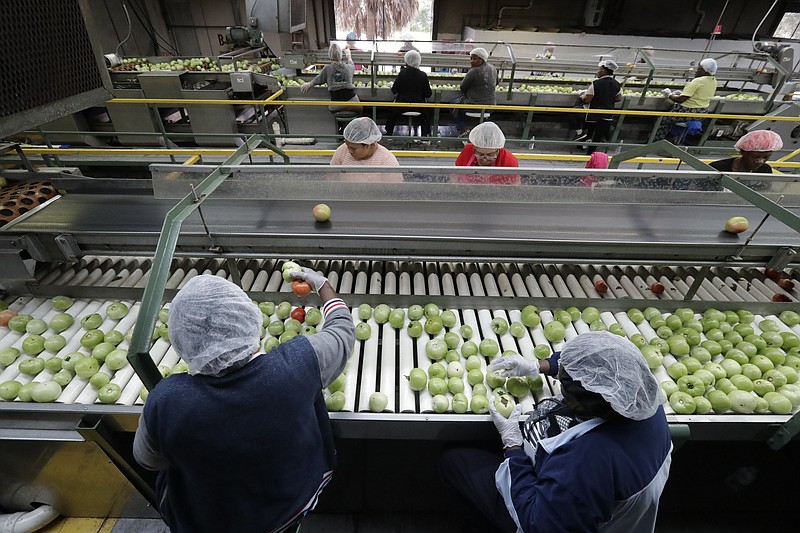Producer prices rise 11.2% in March
The surging cost of energy pushed wholesale prices up a record 11.2% last month from a year earlier - another sign that inflationary pressure is widespread in the U.S. economy.
The Labor Department said Wednesday that its producer price index - which measures inflation before it reaches consumers - climbed at the fastest year-over-year pace in records going back to 2010 and rose 1.4% from February. Energy prices, which soared after Russia's Feb. 24 invasion of Ukraine, were up 36.7% from March 2021.
The wholesale inflation report came out a day after the Labor Department reported that consumer prices last month jumped 8.5% from a year earlier - fastest annual clip since December 1981.
Under pressure to combat rising prices, the Federal Reserve raised ts benchmark short-term rate by a quarter-point last month and has signaled it plans several more hikes this year.
"With a new wave of lockdowns in China and the war in Ukraine raging on risks to the inflation outlook remain firmly to the upside," economists Mahir Rasheed and Kathy Bostjancic of Oxford Economics wrote in a research report.
Amazon adds 5% inflation surcharge
Amazon.com said Wednesday it will add a 5% "fuel and inflation surcharge" to fees it charges third-party sellers who use the retailer's fulfillment services as the company faces rising costs.
The company said in an announcement on its website that the added fees, which will take effect on April 28, are "subject to change" and will apply to both apparel and non-apparel items. Amazon didn't immediately respond to a request for comment.
Federal data released Tuesday showed inflation jumped 8.5% in March, its fastest pace in more than 40 years. Gasoline prices rocketed 48% in the past 12 months.
The online retailer said the fees will apply to products ordered before April 28 but shipped and delivered after that date.
California wants to triple EV sales by 2026
California wants electric vehicle sales to triple in the next four years to 35% of all new car purchases, an aggressive target set as part of the goal to phase out the sale of gas-powered cars.
The proposal released Tuesday by the California Air Resources Board puts the state on a roadmap to achieve Democratic Gov. Gavin Newsom's ambitious goal of phasing out the sale of new gas-powered cars by 2035. It begins a months-long state review and the plan requires approval from the U.S. Environmental Protection Agency.
Emissions spewed from gas-powered passenger vehicles make up about a quarter of the state's total greenhouse gas emissions - more than any other single source, according to the state air board. California has established some of the nation's most aggressive climate policies and is the first state in the country that's set a target for transitioning to zero-emission vehicles.
About 11% of all new passenger car sales nationally happen in California, giving the state significant influence over the auto market. Californians would still be allowed to drive gas-powered cars and sell used ones.
- Compiled by Dave Flessner
